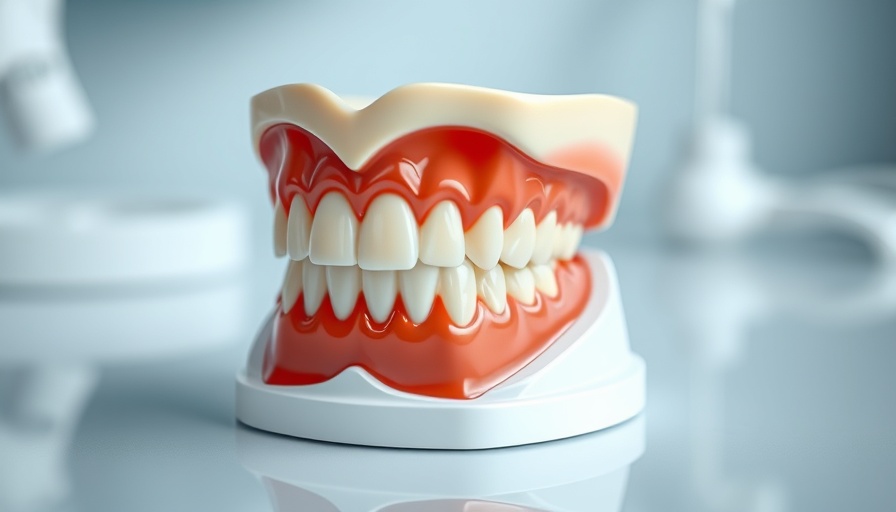
The Overlooked Link: Why Oral Health Matters
When we consider our overall health, we often focus on physical fitness and nutrition, sometimes neglecting the significant role our oral health plays. Your mouth is not just for eating and speaking; it’s a complex ecosystem that can profoundly affect your entire body. Studies are increasingly showing that poor dental hygiene can lead not just to gum disease but can also be a precursor to systemic health problems, making it vital for adults, especially those aged 40-70, to pay serious attention to their oral care.
Understanding the Microbiome: Friend or Foe?
Every mouth hosts a diverse microbiome—a community of bacteria that includes both beneficial and harmful types. When proper oral hygiene is lacking, harmful bacteria can thrive, leading to periodontal diseases like gingivitis. More importantly, these bacteria can escape the oral cavity via inflamed gums, entering the bloodstream and potentially triggering or exacerbating health issues beyond the mouth.
Linking Oral Health with Systemic Diseases
Research has increasingly illuminated various systemic diseases that correlate with poor oral health:
- Cardiovascular Diseases: There is a well-established correlation between gum disease and increased risks of heart attacks and strokes. Inflammation from gum disease can travel to blood vessels, contributing to arterial inflammation.
- Diabetes: People with diabetes are at greater risk for developing gum disease, while severe gum disease can also complicate diabetes management, creating a vicious cycle.
- Respiratory Infections: Inhaling bacteria from periodontal tissues can lead to infections such as pneumonia, particularly in older adults or those with pre-existing conditions.
- Pregnancy Risks: Studies indicate that women with poor oral health during pregnancy may face complications such as premature birth and low birth weight.
- Digestive Issues: The oral-gut connection is gaining attention in research, as harmful mouth bacteria may disrupt gut health and contribute to issues like IBS or chronic inflammation.
- Other Concerns: Evidence also points to associations with rheumatoid arthritis and certain cancers, emphasizing that oral health extends its influence well beyond the mouth.
Taking Control: Preventive Measures You Can Embrace
Given these correlations, it becomes clear that prioritizing oral hygiene is critical. Here are some actionable insights to help you seize control over your oral health:
- Regular Dental Check-ups: Aim to visit your dentist at least twice a year for professional cleanings and examinations.
- Daily Oral Hygiene: Brush at least twice daily with fluoride toothpaste and floss to remove plaque buildup effectively.
- Watch Your Diet: Limit sugar intake and eat a balanced diet rich in vitamins and minerals that promote healthy gums and teeth.
- Stay Hydrated: Drinking plenty of water can help wash away food particles and bacteria.
- Quit Smoking: Tobacco use can severely impact oral health and exacerbate gum disease.
Your Next Steps Towards Better Health
The connection between oral health and overall well-being cannot be overstated. Now is the perfect time to reflect on your dental care habits and commit to improving them. Don't wait for a dental issue to arise before addressing your oral hygiene. Schedule your next dental appointment and invest in your health—your body will thank you for it.
To further enhance your wellness journey, consider participating in community health initiatives that promote oral hygiene and overall well-being. Join workshops or local events that focus on education and preventive care.
 Add Row
Add Row  Add
Add 




Write A Comment